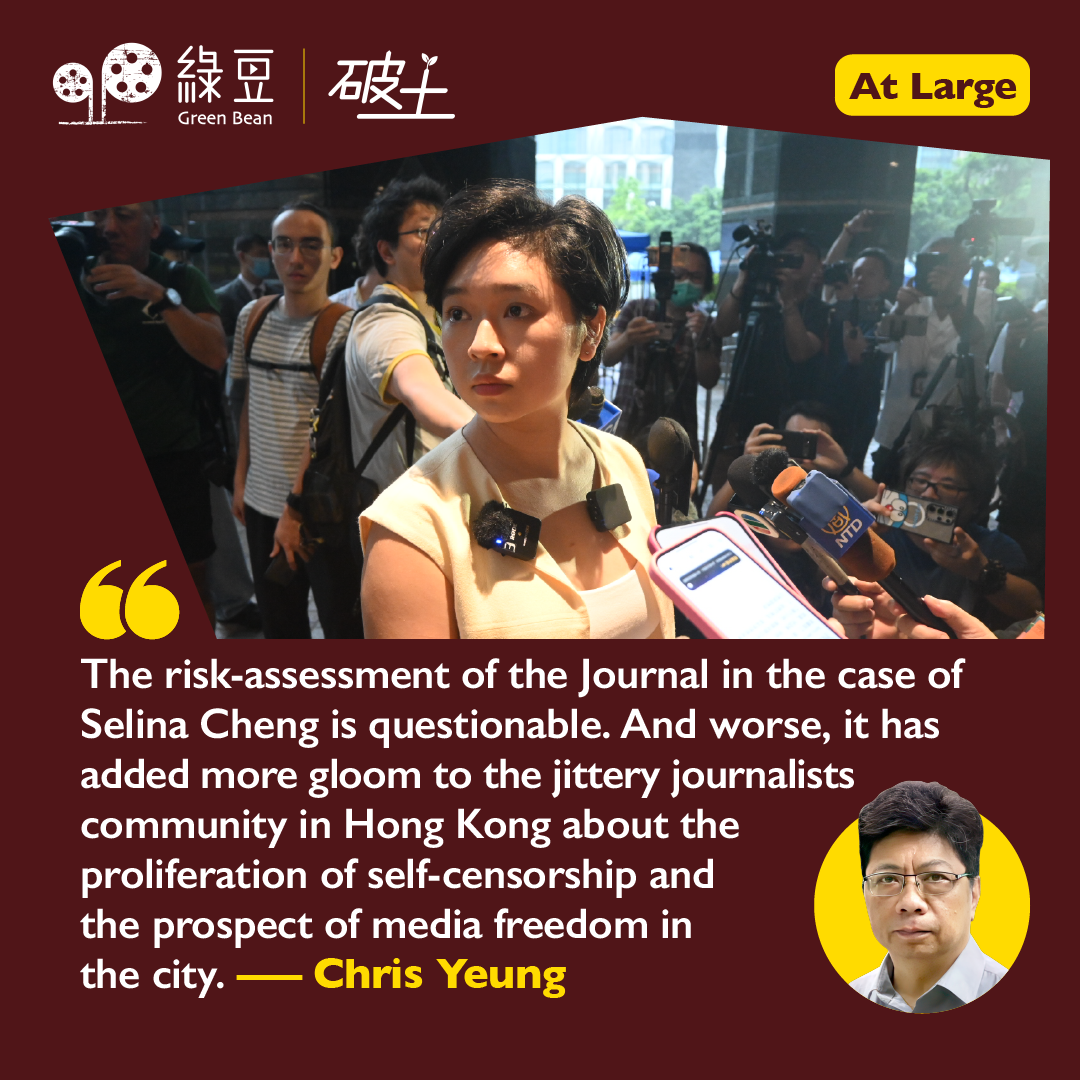WSJ makes bad news by firing Cheng for HKJA role

The Wall Street Journal hit the headlines for the worst reason. It became the subject of condemnation and ridicule after Selina Cheng, who chairs the Hong Kong Journalists Association (HKJA), said she was fired by the news group for refusing to give up her leadership role in the union.
The Journal has only themselves to blame.
By firing Cheng for her leading role in a registered trade union in Hong Kong, the Journal has set a bad example of punishing journalists who are committed to defending media freedom and fighting for the well-being of fellow journalists.
Cheng, who took up the hot seat on July 1, said on last Wednesday she had been sacked with immediate effect because she refused to bow to pressure by her former employer to pull out of the union’s election for chairperson and executive committee members in late June.
She added that the paper’s management had warned her against being “seen as advocating for press freedom in a place like Hong Kong”.
The Journal confirmed there were “some personnel changes” but refused to provide further details.
HKJA under attacks
Cheng was not the lone one who was asked by her employer not to contest for a seat in HKJA’s executive committee.
On the eve of the election on June 22, two candidates running for the executive committee seats had wanted to pull out from the poll. But there was no mechanism to do so. They resigned after being elected. Since then, two more executive committee members who were elected quit the committee. Cheng said it was not appropriate to disclose why they resigned.
The unprecedented, last-minute withdrawal of candidates from the leadership race at HKJA came in the heels of a barrage of fresh attacks by the pro-Beijing media against the union, which is the oldest journalists’ body in Hong Kong.
Journalist candidates who worked for foreign media outlets including the Journal, BBC and Washington Post were singled out for attack for their previous reports related to the 2019 social movement.
Noting those media reports, Secretary for Security Chris Tang Ping-keung renewed his accusation against the union for not being representative of Hong Kong journalists.
Political organization?
Following the sacking of Cheng, writers in a pro-Beijing online media claimed the Journal decided to get rid of her because the union has become a “political organisation.”
The fact that the Journal is seen to have caved in to the attacks by the pro-Beijing media and the authorities has ironically given ammunition for them to justify their political labeling of HKJA.
That could not be more ridiculous and untrue.
Being a registered trade union since 1968, HKJA would have been de-registered by the Labour Department if it was found to have breached the Trade Unions Ordinance.
Chief Executive John Lee and his team have stressed that the Government would strictly enforce the law. There is no reason to believe they have been more lenient to HKJA than other trade unions when it comes to abiding by the law.
Presumably, a journalists’ trade union will become a political organisation if it takes part in politics, such as elections, or takes positions on political issues such as the electoral system. HKJA has never run for seats in elections, nor backed any candidates. It has not made any comment on the government’s revamp of the election system in the past two years.
It is worth noting the pro-Beijing Federation of Trade Union holds one seat in the decision-making Executive Council, seven seats in the Legislative Council and 43 seats in district councils. It says on its website they take part in politics to fight for labour rights and benefits.
Risk-assessment
To be fair, it is still unclear why the Journal brutally axed Cheng.
Following the enactment of the Hong Kong national security law in 2020, foreign media started scaling down their operation, relocating some of their staff from the city to other places, or doing both.
Understandably, the Journal may feel more panic in the face of the recent conviction of their reporter Evan Gershkovich of spying charges in Russia. He was sentenced to 16 years in jail. One case of journalists being arrested for political reasons is too many.
But the risk-assessment of the Journal in the case of Selina Cheng is questionable. And worse, it has added more gloom to the jittery journalists community in Hong Kong about the proliferation of self-censorship and the prospect of media freedom in the city. That could not be the original intent of the Journal.
( Photo : inmediahk )